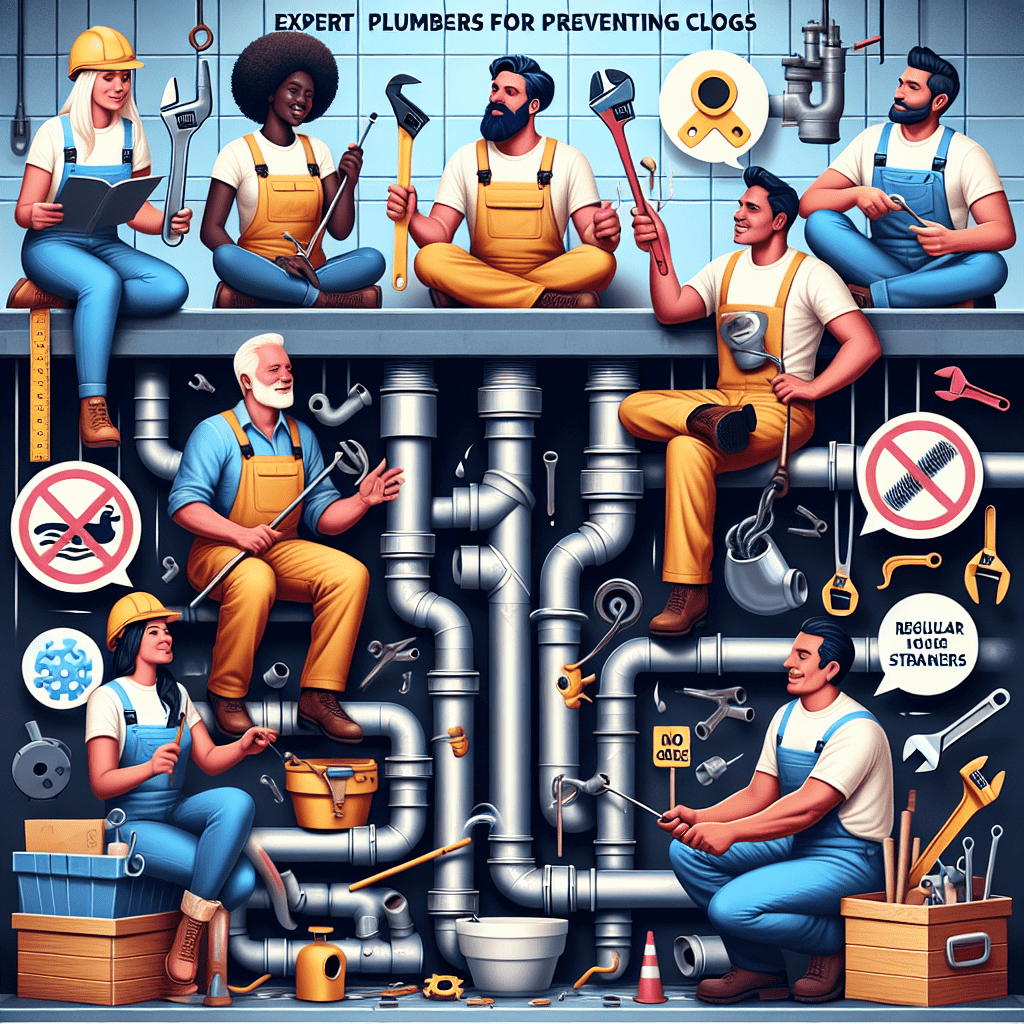Expert Plumbers Share Their Top Tips for Preventing Clogs
When it comes to plumbing issues, clogs are one of the most common problems that homeowners face. Whether it’s a clogged sink, toilet, or shower drain, dealing with blockages can be a frustrating and messy ordeal. To help you avoid the headache of clogs in your home, we reached out to expert plumbers for their top tips on preventing them. Here’s what they had to say:
1. Be Mindful of What You Flush
One of the most common causes of clogs in toilets is flushing items that shouldn’t be flushed down the drain. Items like baby wipes, cotton swabs, and sanitary products can easily clog up your pipes and lead to a backup. To prevent this, only flush human waste and toilet paper down the toilet.
2. Use a Drain Filter
To prevent hair and soap scum from clogging up your shower and sink drains, consider using a drain filter. These inexpensive devices can catch hair and other debris before they have a chance to accumulate in your pipes.
3. Avoid Pouring Grease Down the Drain
Grease and cooking oils can solidify in your pipes and cause major clogs. Instead of pouring them down the drain, collect them in a container and dispose of them in the trash.
4. Regularly Clean Your Drains
One of the best ways to prevent clogs is by regularly cleaning your drains. This can be done using a mixture of baking soda and vinegar or a commercially available drain cleaner. By keeping your drains clear of buildup, you can reduce the chances of a clog occurring.
5. Install a Water Softener
Hard water can cause mineral buildup in your pipes, leading to clogs and reduced water flow. Installing a water softener can help prevent this by reducing the mineral content in your water.
6. Be Careful with Your Garbage Disposal
Garbage disposals are convenient appliances, but they can also be a common source of clogs. To prevent this, avoid putting fibrous or starchy foods down the disposal, as they can cause blockages.
Conclusion
By following these top tips from expert plumbers, you can help prevent clogs in your home and keep your plumbing system running smoothly. Remember to be mindful of what you flush, use drain filters, avoid pouring grease down the drain, regularly clean your drains, install a water softener, and be careful with your garbage disposal. Taking these preventative measures can save you time, money, and frustration in the long run.
FAQs
Q: How often should I clean my drains?
A: It’s recommended to clean your drains every few months to prevent clogs from forming.
Q: Can I use a plunger to unclog my sink or toilet?
A: Yes, a plunger can be an effective tool for clearing minor clogs in your sink or toilet.
Q: What should I do if I have a stubborn clog that won’t clear?
A: If you have a stubborn clog that won’t clear with a plunger or drain cleaner, it’s best to call a professional plumber to avoid causing damage to your pipes.
TIP: Schedule a Professional Plumbing Inspection
One of the best ways to prevent clogs and other plumbing issues is by scheduling a professional plumbing inspection. A licensed plumber can identify any potential problems in your system and address them before they become major issues. Consider scheduling an annual inspection to keep your plumbing in top shape.
#Expert #Plumbers #Share #Top #Tips #Preventing #Clogs
